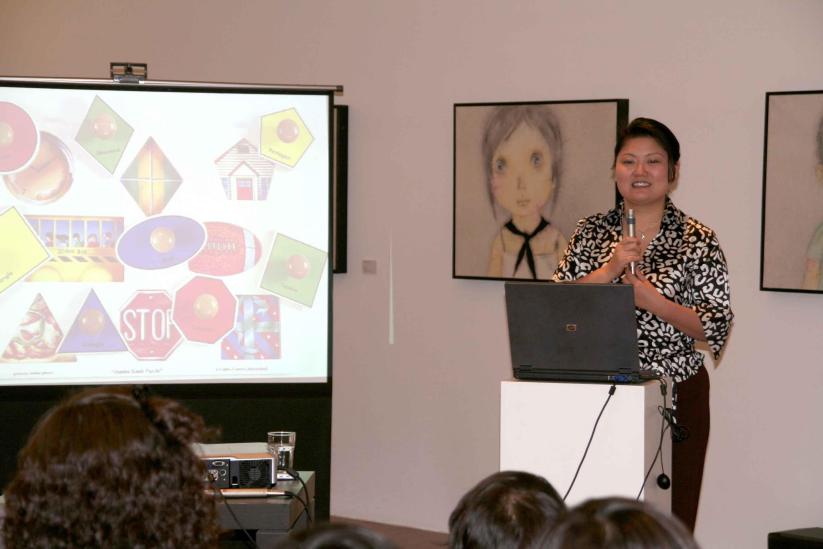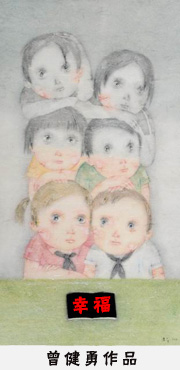Happiness does exist, and it should be one of our lifelong pursuits. However, achieving happiness is still a tough riddle to solve. What is the source of people’s happiness? Is it in our genetics, or can we find it in the world around us? Is it our soul or is it created through our actions? On May 23, 2009, Dandeli Art Space will welcome Ms. Ni Zijun, President of Asian Institute of Positive Psychology, to deliver a presentation on how to search for happiness.
The Science of Happiness
For hundreds of years the concept of “Happiness” has been a hot topic of discussion. From Aristotle to Confucius, many of the great philosophers, artists, entrepreneurs, and politicians have dedicated some of their thoughts to solving the riddle of happiness.
In 1998, Martin Seligman started the concept of “positive psychology” as a new offshoot of the discipline. He is considered the father of the modern “positive psychology” movement, and he chose it to be the theme of his presidency of the American Psychological Association. Moreover, Harvard’s course of “positive psychology” is one of its most popular courses. “Positive psychology is different from traditional psychology because it does more than try to treat mental illness; it focuses its science on helping people find happiness. Positive psychologists seek to find someone’s talent, nurture it, and help someone find a more fulfilling life. Thus, “positive psychology” leads us all towards its belief that happiness can be learned, practiced, and improved.
Misunderstandings about Happiness
Ms. Ni thinks that people often misinterpret what happiness is.
Some people believe that happiness is accomplishing their goals in life. However, Ms. Ni leads us to believe that the relieved and fulfilled feeling of achieving life’s goals is not the essence of happiness, but a psychological process that people experience after the physical and mental burdens of achieving their goals are eliminated. When people mistake this release from the stress of pursuing their goals for “happiness”, it is dangerous, because they can easily become addicted to a “false happiness” that will make their life goal-oriented. She comments that people that only chase their goals will not be happy, instead, they will be under persistent stress to achieve until that pressure causes a mental break-down.
Also hedonists believe that happiness is the feeling of euphoria that occurs when our sense of sight, touch, taste, or smell is stimulated. Therefore, to a hedonist happiness could just be getting a new car, a new house, or a new relationship. Yet, this temporary material desire satisfaction should not be misinterpreted as happiness because happiness can only be found on a much deeper spiritual level.
Then there are the pessimists, they do not even think happiness exists, they leave everything to chance. They are always immersed in the grief and pain of their past, and cannot bring themselves to think that the present and the future can be better.
Yet, Ms. Ni tries to lead us toward knowing that true happiness can only be found in those who are truly their own masters. They balance their positives and negatives in a way that allows them to find happiness throughout the entire process that is life. More importantly, they are always motivated to move forward to work towards creating a future that is persistently satisfied. This long lasting satisfaction is the true happiness.
The Key to Happiness
Ms. Ni says, “Happiness is not the end of a journey, but the journey itself.” Statistics show that there are many factors that are decisive to a person’s happiness. Some estimates show that genetics determine 50% of a person’s happiness, while external factors represent 10%, and that the other 40% comes from our own initiative.
Evolution has provided most people a good start towards being able to be happy. Yet, Ms. Ni finds it is sad that we do not use our initiative be happy because we give up on our gifts. When Michelangelo was asked how he created David, he said he saw David the first time he looked at the marble and all he did was to get rid off the rest of the stone.
Knowing that we have so much control of our own happiness, we can focus our initiative control up to 40% of the factors to our happiness. These initiative factors can make a huge difference that if we control ourselves enough we can be happy. However, often our initiatives are not completely in our control, hard times will overtake many of our own initiatives. Theoretically, revelations like the financial crisis should only have a 10% impact on our happiness, but serious crises tend to be a bigger piece of our lives than we realize. Therefore, if we want to open the door of happiness, we must use the key of our initiative to unlock the world. Thus, if we want a house of happiness we must build it with our own hands.












